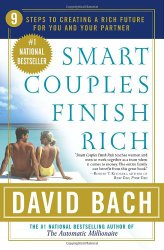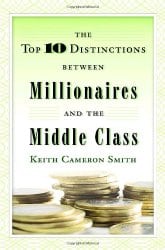Keith Cameron Smith
This is a short and very easy read. I really love how in Distinction #10, the author breaks down society into five groups: the very poor (who think day to day), poor (who think week to week), middle class (who think month to month), rich (who think year to year), and very rich (who think decade to decade). I absolutely believe that mindset plays a major factor in your wealth.
In line with that, in Distinction #6, Keith Smith states that most millionaire he knows read one book a week, yet the middle class thinks learning ended with school.
Read this book to learn other ways that can separate the middle class from the millionaires.











